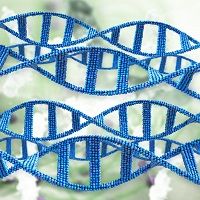Study Identifies Possible Biomarkers for Bipolar Disorder
A study in Translational Psychiatry has identified three potential genes that could prove to be responsible for disturbances in mitochondrial function and DNA repair mechanisms in bipolar disorder. The genes in question – POLG, OGG1, and NDUFV2 – may open new targets for examination. The study authors themselves consider the results to be "somewhat promising."

A study in Translational Psychiatry has identified three potential genes that could prove to be responsible for disturbances in mitochondrial function and DNA repair mechanisms in bipolar disorder. The genes in question — POLG, OGG1, and NDUFV2 — may open new targets for examination. The study authors themselves consider the results to be “somewhat promising.”
This discovery, though preliminary, points to both the incredible potential and yet frustrating reality that can come from trying to identify genetic biomarkers. The mapping of the human genome was a monumental accomplishment, but it must necessarily be followed by the arduous legwork of determining one, two, or possibly thousands of genetic suspects for which over- or under-expression could contribute to disease etiology, pathophysiology, and treatment.
First, the study authors assessed messenger RNA levels in 19 candidate genes in 37 patients with bipolar disorder in different affective states (depression, mania, and euthymia). The subjects were age- and gender-matched to 40 healthy controls and observed during a six to 12-month period. Second, a composite gene expression measure was constructed in the first half study sample and independently validated in the second half of the sample. The researchers found downregulation of POLG and OGG1 expression in patients with bipolar disorder compared with the healthy control subjects. In patients with bipolar disorder, upregulation of NDUFV2 was observed in a depressed state compared with a euthymic state.
Genes were selected for mRNA analysis on the basis of previous findings and current hypothesis related to the pathophysiology of bipolar disorder. There were no overall statistically significant differences between patients with bipolar disorder and healthy control subjects with regard to age, gender distribution, educational level, or body mass index. All the participants were Caucasian and outpatients at the time of inclusion.
The results in many cases build on other findings in human and animal studies. For example, OGG1 expression dysregulation is a novel finding in bipolar disorder. In animal studies, it has been suggested that OGG1 deficiency could increase susceptibility to neurodegeneration under conditions of increased oxidative stress.
“Recently, we showed high levels of oxidatively generated damage to DNA in this cohort, for the first time demonstrating elevated levels of urinary excreted 8-oxodG in bipolar disorder patients through all affective phases (hypomania/mania, depression and euthymia) compared with healthy control subjects,” the study authors noted.
Transgenic mice with brain-specific expression of mutant POLG exhibit a phenotype resembling bipolar disorder with antidepressant-induced mania-like behavior and periodic activity related to estrous cycle in female animals.
Study limitations include small sample size and the fact that not all patients experienced episodes of all polarities. Also, because some of the patients in the study were receiving lithium, mood-stabilizers and/or antipsychotics, the possibility that differences in the gene expression between bipolar disorder and healthy control subjects were due to, or at least partially explained by, an effect of medication.
“Future studies should include larger sample sizes that would potentially allow for strict within-subject analyses and a further exploration of biomarker candidates to function in a personalized manner,” the authors concluded.